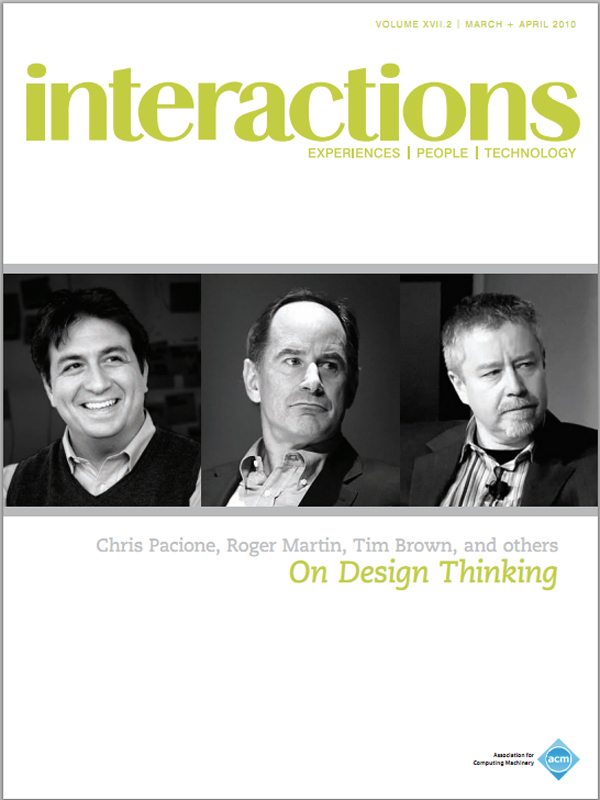Authors:
Chris Pacione
In the year 1202, a mathematician named Leonardo of Pisa published a book that changed the world. To many he is known as Fibonacci, and he's famous because this sequence of numbers0, 1, 1, 2, 3, 5, 8, 13, 21, 34, 55 and so onbears his name. The Fibonacci series, as it is known, is an algorithm or proportion found in nature, from the bracts of pinecones to DNA molecules, in which the first number of the sequence is 0, the second number is 1, and each subsequent number is equal to the sum of the previous two. Although…
You must be a member of SIGCHI, a subscriber to ACM's Digital Library, or an interactions subscriber to read the full text of this article.
GET ACCESS
Join ACM SIGCHIIn addition to all of the professional benefits of being a SIGCHI member, members get full access to interactions online content and receive the print version of the magazine bimonthly.
Subscribe to the ACM Digital Library
Get access to all interactions content online and the entire archive of ACM publications dating back to 1954. (Please check with your institution to see if it already has a subscription.)
Subscribe to interactions
Get full access to interactions online content and receive the print version of the magazine bimonthly.







Post Comment
No Comments Found